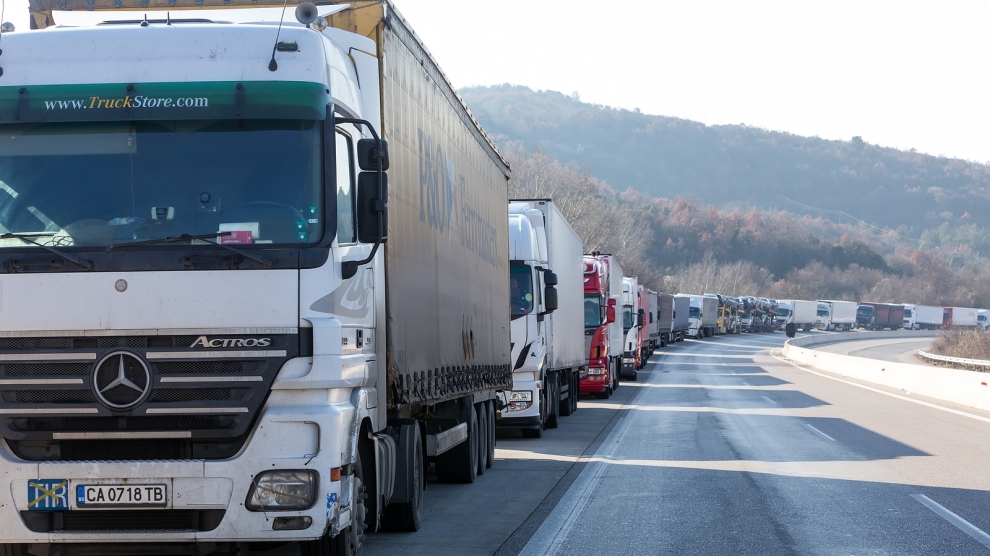Protesters across Bulgaria have held demonstrations and blocked roads and motorways across the country. There were reports of traffic queues stretching for kilometres in the southwest of Bulgaria. The main cause of the demonstrations are rising energy and fuel tariffs, increases in vehicle liability insurance and other household expenses and continued low wages.
Darik News reported that protests had been organised in over 30 towns and had attracted hundreds, and in certain places, thousands of vehicles. Frog News reported that there were demonstrations in over 50 towns across the country. One of the most affected motorways was the E79, which connects the capital Sofian with Blagoevgrad and the border with Greece. Protesters stated that they will keep the roads blocked until the resignation of the government.
On November 11, Sofians gathered in front of the building of the Council of Ministers and shouted slogans such as Mafia! and Resign!. Protesters not just in the capital, but across the country demanded the minimum wage be increased to 750 levs (383 euros), the minimum pension to 350 levs (179 euros), the starting salary of a nurse to 1200 levs (614 euros) and for a doctor – 2000 levs (1023 euros).
The previous day, citizens of the northern town of Ruse and the southwestern town of Pernik protested against air pollution in their towns. Ruse, which lies on the Danube river and the border with neighbouring Romania, saw its bridge crossing into Romania blocked. The protest’s organisers stated that by blocking a major European route, they wanted European citizens to pay attention to the issue of air pollution in the city.
Pernik’s residents’ cleaner air initiative involved a concert held under the slogan Breathe Pernik. Representatives of Greenpeace Bulgaria and Zero Waste provided those attending with information regarding the city’s air and pollution problems.
Protesters across Bulgaria have held demonstrations and blocked roads and motorways across the country. There were reports of traffic queues stretching for kilometres in the southwest of Bulgaria. The main cause of the demonstrations are rising energy and fuel tariffs, increases in vehicle liability insurance and other household expenses and continued low wages.
Darik News reported that protests had been organised in over 30 towns and had attracted hundreds, and in certain places, thousands of vehicles. Frog News reported that there were demonstrations in over 50 towns across the country. One of the most affected motorways was the E79, which connects the capital Sofia, Blagoevgrad and the border with Greece. Protesters stated that they will keep the roads blocked until the resignation of the government.
On November 11, Sofians gathered in front of the building of the Council of Ministers and shouted slogans such as Mafia! and Resign! Protesters not just in the capital, but across the country demanded the minimum wage be increased to 750 levs (383 euros), the minimum pension to 350 levs (179 euros), the starting salary of a nurse to 1200 levs (614 euros) and for a doctor – 2000 levs (1023 euros).
The previous day, citizens of the northern town of Ruse and the southwestern town of Pernik protested against air pollution in their towns. Ruse, which lies on the Danube river and the border with neighbouring Romania, saw its bridge crossing into Romania blocked. The protest’s organisers stated that by blocking a major European route, they wanted European citizens to pay attention to the issue of air pollution in the city.
Pernik’s residents’ cleaner air initiative involved a concert held under the slogan Breathe Pernik. Representatives of Greenpeace Bulgaria and Zero Waste provided those attending with information regarding the city’s air and pollution problems.

